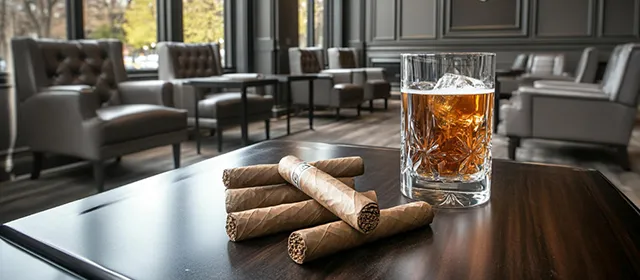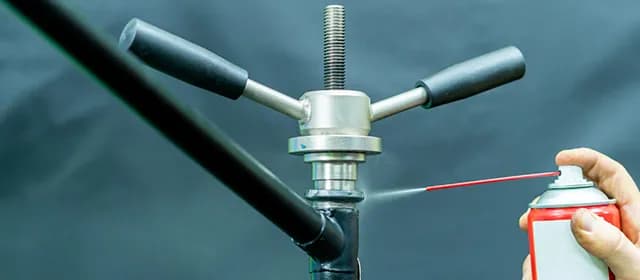Luxury cigars have always symbolized refinement, exclusivity, and craftsmanship. Yet, what’s happening today goes beyond tradition; the luxury cigar industry is evolving into a sophisticated ecosystem driven by art, experience, and identity. From private cigar lounges in five-star resorts to small-batch hand-rolled masterpieces, cigars have redefined their place in the premium lifestyle segment.
According to Kings Research, the global luxury cigar market is set to grow at a compound annual growth rate of (CAGR) of 6.38% between 2024 and 2031. Leading cigar brands, hospitality groups, and retailers are aligning with evolving consumer values. For many industrial and hospitality leaders, the shift represents a new chapter in the business of luxury.
What Defines the Modern Luxury Cigar Experience?
The modern luxury cigar market is defined not merely by its products but by the experiential value derived from artisanal craftsmanship. Each cigar involves extensive manual processes, including the selective sourcing of premium tobacco leaves and precision rolling techniques maintained and refined over successive generations.
Brands such as Gurkha Cigar Group and Padrón Cigars have taken this artistry further, developing limited-edition hand-rolled cigars and boutique production models. These strategies reflect a broader premiumization trend, where exclusivity and heritage define brand value.
According to a study published in the Nicotine & Tobacco Research journal, approximately 0.9% of U.S. adults were premium cigar users in 2021, compared to just 0.4% of non-premium traditional cigar users. The study also noted that 97.7% of premium cigar consumers were male, with 35.8% aged 55 or older, and the average price per premium cigar reached $8.67, far higher than other cigar types. (Source: https://pubmed.ncbi.nlm.nih.gov/)
These numbers reveal a clear pattern: consumers aren’t just paying for tobacco, but for authenticity, exclusivity, and craftsmanship. Luxury cigars have transitioned from being a consumable to a collectible, a reflection of culture, legacy, and personal taste.
How Are Hospitality and Retail Redefining Cigar Luxury?
Luxury hospitality is playing a pivotal role in bringing cigars back into the cultural spotlight. Hotels, resorts, and private lounges are transforming cigar enjoyment into curated experiences.
Cigar sommeliers, tasting events, and pairing sessions are now standard offerings in many high-end destinations. These experiences combine education with indulgence, allowing guests to explore cigar origins, flavor profiles, and pairings with fine spirits.
This movement isn’t limited to Cuba or the Caribbean. Luxury resorts in cities like Dubai, London, and Miami are creating immersive cigar programs to strengthen their hospitality appeal. These curated experiences represent what analysts call “experiential luxury,” a sector where emotion and personalization drive value more than physical goods.
The result is a new partnership model between cigar manufacturers and the hospitality industry. Cigar makers gain exposure to high-spending clientele, while hotels and resorts enhance their brand identity through exclusivity and storytelling.
Experiential retail is also transforming how cigars are sold. Boutique cigar stores and private clubs are replacing traditional shops, offering personalized recommendations and spaces designed for social connection. In this setting, cigars are not just smoked, they’re shared, discussed, and remembered.
What’s Driving Younger Generations Toward Cigar Culture?
Traditionally, cigars were viewed as a pastime of older, affluent men. However, this perception is rapidly changing. Millennials and Gen Z are increasingly engaging with the luxury cigar market, not out of habit, but out of curiosity, identity, and experience.
Social media has amplified this transformation. Cigar lounges, artisanal brands, and influencers are using digital platforms to showcase the craftsmanship and lifestyle associated with cigars. For younger buyers, a cigar represents more than status; it represents individuality and belonging to a niche cultural circle.
A Nicotine & Tobacco Research study found that among women of reproductive age who smoked cigars, around 5% reported using premium cigar brands, with Romeo y Julieta, Cohiba, and Macanudos emerging as popular choices (Source: https://academic.oup.com/). These consumers also tend to have higher income levels and demonstrate a clear preference for quality over quantity.
This indicates that the future of luxury cigars lies not just in traditional enthusiasts but in a younger, experience-driven audience that values authenticity, exclusivity, and the artistry behind each smoke.
How Are Brands Building Emotional Value Around Craftsmanship?
Luxury cigar branding is evolving from heritage storytelling to emotional connection. Brands are no longer relying solely on legacy; they are building narratives around craftsmanship, sustainability, and the hands behind the product.
Manufacturers are investing heavily in skilled artisans and rare tobacco varieties, positioning their products as timeless works of art. The emotional connection between cigar and consumer is deepened through exclusivity, limited-edition releases, collector’s boxes, and collaborations with luxury fashion and watch brands.
Take Gurkha Cigars, often referred to as the “Rolls-Royce of cigars.” Its limited-edition lines, sometimes priced in the thousands per box, are produced in extremely small batches. Each piece carries a story of origin, technique, and legacy, appealing to the modern connoisseur who values meaning as much as material.
In this sense, premiumization is more than pricing; it’s about emotional storytelling and connection. Brands that master this balance between craftsmanship and narrative are shaping the future of luxury indulgence.
Where Does Sustainability Fit in the Luxury Cigar Landscape?
While cigars are crafted from natural materials, manufacturers are now looking deeper into the environmental and ethical dimensions of production.
From organic tobacco farming and fair-trade practices to biodegradable packaging, the premium cigar industry is slowly integrating sustainability as part of its brand identity. Some boutique producers are even experimenting with eco-certified plantations and renewable curing processes to reduce carbon emissions without compromising flavor.
This shift aligns with global consumer awareness, where luxury buyers increasingly seek ethical alignment alongside craftsmanship. The combination of artistry, sustainability, and exclusivity is redefining what “premium” truly means in the modern age.
How Technology Is Enhancing the Premium Cigar Experience
Technology may seem far removed from an age-old craft like cigar making, but it’s now playing a subtle yet powerful role.
Smart humidors, for instance, monitor temperature and humidity using connected sensors, ensuring cigars remain in optimal condition. Blockchain tracking is also emerging, allowing buyers to trace a cigar’s origin, authenticity, and supply chain history.
Even digital retail is transforming the space. Virtual cigar lounges, online tastings, and AR-assisted brand experiences are reaching global consumers who may never step foot in a Havana factory or European cigar club.
For the luxury industry, this digital transformation bridges heritage and modernity, bringing a centuries-old art form into the connected world.
What Does the Future of the Luxury Cigar Industry Look Like?
Looking ahead, the luxury cigar segment will likely continue to evolve as an intersection of craftsmanship, lifestyle, and technology. As traditional markets in the U.S. and Europe mature, emerging markets in Asia, the Middle East, and Latin America are expected to see rising demand for premium, collectible cigars.
Younger audiences will continue to redefine consumption, valuing exclusivity, experience, and authenticity over mass production. Meanwhile, hospitality and retail will merge even further, offering personalized, multisensory cigar experiences that blend tradition with innovation.
Brands that focus on artisanal quality, ethical sourcing, and emotional storytelling will dominate the next phase of growth. Ultimately, the luxury cigar will remain a timeless indulgence, not because of its smoke, but because of the story it tells.
Final Thoughts
Luxury cigars have become a strategic driver of the premium lifestyle market. By combining artisanal craftsmanship, limited-edition exclusivity, and immersive experiences, cigars now influence hospitality, retail, and consumer engagement strategies across industries.
The rise of experiential consumption, coupled with younger audiences seeking authenticity and individuality, is reshaping how brands position themselves in this segment. Hospitality partnerships, curated tasting events, and smart retail solutions are further elevating the cigar experience, turning it into a lifestyle statement rather than a simple product.
For manufacturers, hospitality leaders, and luxury brand strategists, understanding this evolving landscape is critical. Those who integrate heritage, innovation, and consumer experience into their approach will not only capture market share but also strengthen brand loyalty in a highly discerning premium audience. In essence, luxury cigars are redefining what it means to offer value in the premium market.




